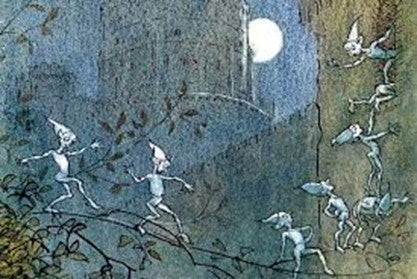Hogmanay Kindness
In Scotland, the New Year celebration is called Hogmanay – pronounced HOG-MUH-NAY. Ah, I can almost hear your giggles erupt. Hogmanay? HOGmanay? Not music to your American ears, but when you’ve traveled the world and heard so many different languages spoken, you realize the richness of our wide world of spoken language. Although scholars have argued about it for centuries, many agree that the Scottish language is a mishmash of Norse, Irish, French and English and has no origins in the porcine, bovine or ovine worlds that may come to mind when you hear the word “hog”.
You’re not alone in finding that language amusing. Scots and their language are the source of laughter, sometimes (well, let’s be honest, it’s almost always) unkind, to the English, which rather begs the question: if we’re all daft twits, why are you so bloody anxious to annex us and our land of lost, bleating sheep? I doubt there’s a clear answer to that question, so let’s treat it as rhetorical and move on.
One possible source of the world Hogmanay is the French “homme est né” (which, take my word for it, sounds a lot like “hogmanay”), which means “man is born”, but non-Christian possibilities include more folkloric phrases for the antics of elves and trolls. When I visited Scotland as a wee lassie, my Scottish nanny Sybil derived a lot of glee from terrifying me with tales of the clans of wicked little people lurking in the woods nearby, so I can well believe that connection.
Although of course Hogmanay traditions are numerous, the most widespread, modern(ish) custom practiced when I lived in Scotland in 1970-1971 is called “first-footing”, which starts on New Year’s Eve. It involves being the first person to cross the threshold of a friend or neighbor and often involves the giving of symbolic gifts such as shortbread, whisky, and black bun (a rich fruit cake), intended to bring different kinds of luck to the householder. Food and drink (as more gifts) are then given to the guests. This may go on throughout the early hours of the morning and well into the next day (although modern days see people visiting houses well into the middle of January).
The first-foot is supposed to set the luck for the rest of the year. Traditionally, tall, dark-haired men are preferred as the first-foot, rather like this ruddy-cheeked lad bearing the gifts of a black bun, a smile, and Hogmanay kindness (described in Scots poet Robert Burns’ classic New Year’s poem, Auld Lang Syne, of which you may have heard, even here “across the pond”).

The Finlaystone slaves’ first-footing began in the evening of December 31, 1970 and involved a long, moonlit walk in the damp and dark to the family home of Sari Hepworth’s local boyfriend. I’ve forgotten his name so let’s call him Andrew (a common Scots name). We had dinner as usual at 8:00 p.m. in Finlaystone’s formal dining room and set off on our Hogmanay adventure after we’d finished cleaning up (as usual) the dining room (see picture below), butler’s pantry, kitchen, and scullery.

The first foot in the door of Andrew’s home that night belonged not to a tall, dark-haired man but a short, dark-haired 15-year old girl (Sari) who was too young to qualify for a swallow of whisky but, like her sister Jenny and me, quite willing to feast on shortbread, black buns, and tea while we waited (uselessly) for something exciting to happen. Which didn’t. And after an hour or so of idle chat, we bundled up and trudged back to Finlaystone, where everyone else had gone to bed and we stood in the kitchen debating the merits of a pantry raid versus warm beds. Warm beds won the night and have done so almost every New Year’s Eve in my life ever since, making me wish we’d caught at least one glimpse of Hogmanay elfish mischief. I’m sure the elves were up to something sneaky that night, just not within our narrow human view.


"Hog"manay kind of hits close to my heart. I wonder if we can make this an event that uses sausage?